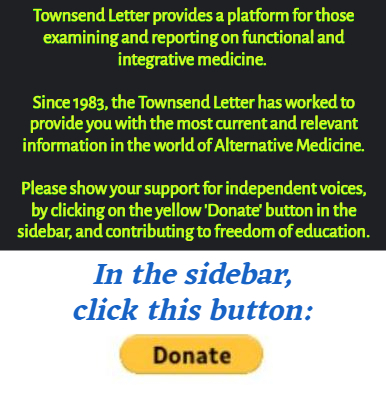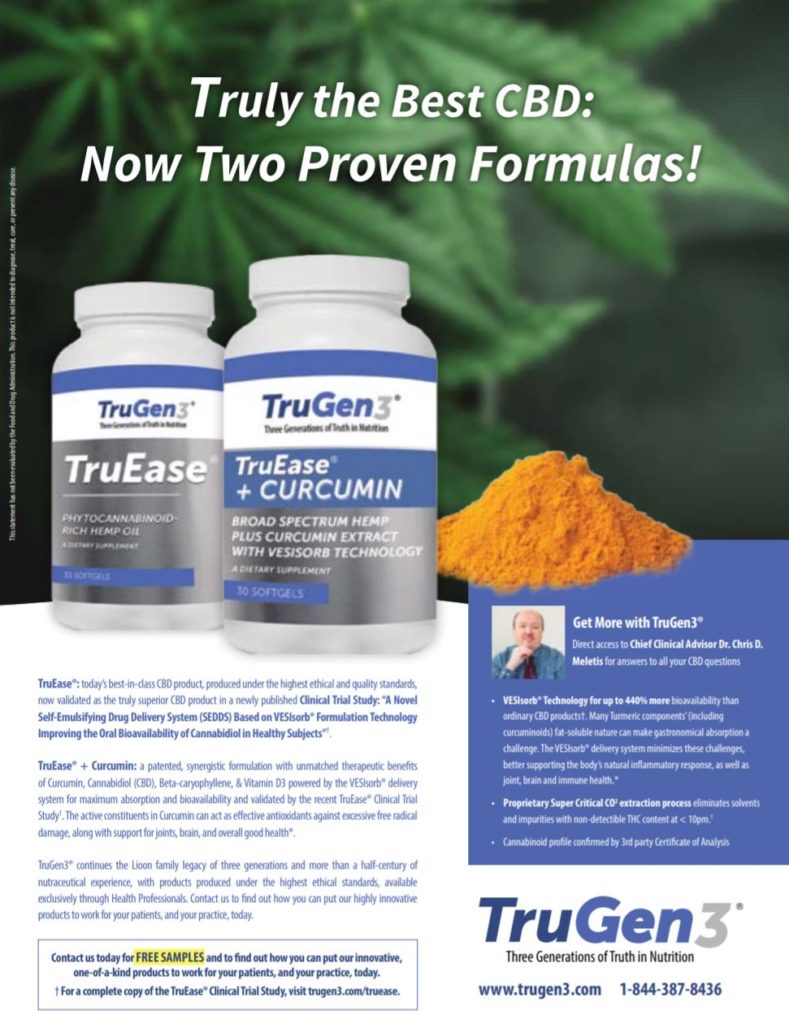article continued…
Damage to mitochondrial membranes is typically due to ROS, RNS, environmental stressors, cellular aging, and mitochondropathies. All of these factors also inhibit mitophagy – a natural process that normally limits ROS-related damage by safely removing damaged and inflammation-promoting mitochondria and mitochondrial components. This results in an inflammatory-driven feed forward cycle, in which membrane damage continues to produce ROS and RNS and damage associated molecular patterns (DAMPs), contributing to numerous diseases and functional loss of cellular energy.
The innate immune receptors, known as pattern recognition receptors (PRRs), are stimulated by these DAMPs to induce the production of inflammatory cytokines, sustaining and promoting inflammation. These components, in turn, orchestrate the assembly of a supramolecular platform (the inflammasome), which then activates pro-inflammatory immune cytokines such as IL-1β, IL-18, and nuclear factor kappa B (NFκβ). This process is the defining link between innate immune responses and mitochondrial functionality. Once activated, additional innate immune effects include the induction of hyperresponsive actions that occur with bacterial triggers from the gastrointestinal tract. The consequences include local inflammation, loss of mucosal barrier integrity, and fatigue.29,30
The molecular mechanisms utilized by bacteria in our gut to maintain immune homeostasis and tolerance through macrophage and dendritic cell activation can be manipulated to favor the promotion of anti-inflammatory cytokines such as IL-10 and TGFβ. The ingestion of probiotics and prebiotics can be used to mediate immune responsiveness via the promotion of regulatory Tcells, dendritic cells and low counter activation of either T helper-mediated: Th1 and Th2 driven inflammatory responses.31,32 The field of immune intervention via consumption of bacteria is over 100 years old, but has recently experienced a significant increase in interest, as the role of the bacteria in our gut is now understood to influence local and systemic illness.33
This sequence of events places mitochondria at the crossroads of bioenergetics metabolism, cell death signalling, and the innate and adaptive immune system.
Healthy mitochondrial function (and death) determines appropriate management of energy production, fatigue control, and innate immune driven inflammation responsiveness. Using LRT administered as a nutritional supplement with antioxidants assures that mitochondrial membrane permeability is maintained in the optimal range, preventing oxidative membrane damage and reducing the number of mitochondrial DNA deletions. Thus LRT can be used to restore mitochondrial and other cellular membrane functions via delivery of undamaged replacement lipids to cellular organelles.34
LRT is not just the dietary substitution of certain lipids with proposed health benefits; it is the actual replacement of damaged cellular lipids with undamaged lipids to ensure proper structure and function of cellular structures, mainly cellular and organelle membranes.12
Inflammation is an essential immune response that enables survival during infection or injury and maintains tissue homeostasis under a variety of noxious conditions. Inflammation comes at the cost of a transient decline in local tissue function, which can in turn contribute to the pathogenesis of diseases and loss of function related to altered homeostasis. Inflammation has been described as the “common soil” of altered health and function.35
Inflammation-driven fatigue is a recognized consequence of host defence, and raising immune responsiveness is an energy-dependent process that is a component of postviral and bacterial infection as well as a more recently proposed response to altered microbial composition (dysbiosis) in the human gut due to environmentally driven factors and mitochondrial damage.36,37

This suggests that alterations to the microbial balance in the digestive tract may induce loss of tolerance and subsequent increase in receptor stimulation, which in turn is amplified via mitochondrial membrane permeability, DAMP production, and inflammasome stimulation. This may then lead to “inflammasome-induced dysbiosis,” which while a relatively new area of research may provide some interesting pathophysiological connections.
Resolution of Chronic Conditions
People with fatiguing conditions often exhibit “sickness” signs and symptoms for a variety of reasons.39 One of these may be an increase in peripheral pro-inflammatory signaling. This notion is based on overwhelming evidence that pro-inflammatory cytokines are capable of inducing all the cardinal symptoms of CFS in humans.40,41
The use of selected immune modulating probiotics along with LRT provides the cytokine milieu the opportunity to be beneficially altered through the management of mitochondrial membrane repair, DAMP reduction, and PRR-induced tolerance via changes in bacterial ratios in the gut towards ones that favour symbiosis. The activation of PRRs induces host-defense signaling pathways that culminate in the production of proinflammatory and antimicrobial molecules as well as anti-inflammatory molecules. Resolution of inflammasome-induced dysbiosis makes a considerable contribution towards improving mitochondrial fitness, just as mitochondrial fitness contributes to the healthy management of gut-mediated immune reactivity.
A central question in immunology is how the immune system discriminates between commensal and pathogenic bacteria. This problem is particularly important in the intestine, where trillions of commensal microorganisms continually challenge the immune system without eliciting a proinflammatory response, and where probiotics, when carefully selected by species and strain, can amplify either desired outcome.42

The results – recovery from fatigue derived from LRT and associated pro- and prebiotics, along with antioxidants – are likely due to reduced pro-inflammatory cytokines and reduced innate immune receptor hypersensitivity.
In addition to fatigue, mitochondrial dysfunction and the accumulation of damaged mitochondrial components have also been linked to a wide variety of chronic, metabolic and degenerative diseases, aging, and cancer.43
LRT has been successfully used in clinical studies to reduce fatigue, increase mitochondrial function and protect cellular and mitochondrial membranes from oxidative damage.10 In multiple clinical studies fatigue was reduced 35% to 43% by oral administration of LRT and key nutrients. Even in severely fatigued patients with chronic fatigue syndrome or fibromyalgia syndrome, LRT reduced fatigue by 43.1%
In a study by Agadjadyan et al., LRT (supplied as NT Factor) reduced fatigue 35.5% in aging adults and significantly improved mitochondrial function to a level that was similar to that found in young, healthy adults.44
This health-altering intersection of immunity, oxidative stress, and dysbiosis can be found in the membranes of the mitochondria residing in our cells – not only of the gastrointestinal tract but all other tissues as well. The clinical use of LRT has the potential to decrease the effects of aging on mitochondria and improve mitochondrial function in chronic diseases, diminish fatigue, and improve altered states of mucosal immunity through the participatory resolution of inflammasome mediated dysbiosis. The improvement in terms of restitution of mucosal and immunological tolerance has potential health benefits that extend systemically.45
©2012 Nutri-Link Ltd.

Michael Ash, BSc, DO, ND, F.DipION, founded one of the UK’s largest integrated medicine clinics, embedded in the principles and practices of functional medicine. In 2008 he retired from full-time practice after 25 years to concentrate on his many years of clinical and research experience in the manipulation of the mucosal immune system. He presents his and others’ work internationally and continues to develop and oversee clinical and research projects for which food concentrates and biological organisms are utilized to aid the restoration and management of mucosal tolerance through the signaling receptors of the innate immune system. Managing director of Nutri-Link Ltd. and Integrative Health Consultants, he maintains a boutique clinical role in which he evolves his research into one-to-one clinical experiences.

Robert Settineri, MS, is an independent research consultant responsible for planning, coordinating, and managing clinical research studies. Mr. Settineri coordinated eight clinical original research publications on lipid replacement therapy (LRT). He developed extraction processes and characterizations of phospholipids and is responsible for writing and submitting a patent for NT Factor. Mr. Settineri also published over 35 scientific research articles pertaining to viral immunology. He has received 32 international awards medical film productions. His medical educational films on immunology are used in universities and hospitals throughout the world. In previous pharmaceutical research, he was responsible for preparation of FDA New Drug Applications that helped support drug registration submissions in 80 countries. Mr. Settineri is also senior vice president and a member of the board of directors for the American Nutraceutical Association.

Professor Garth L. Nicolson is the president, chief scientific officer, and research professor at the Institute for Molecular Medicine in Huntington Beach, California. He is also a conjoint professor at the University of Newcastle (Australia). He was formally the David Bruton Jr. Chair in Cancer Research and professor and chairman of the Department of Tumor Biology at the University of Texas M. D. Anderson Cancer Center in Houston, and he was professor of internal medicine and professor of pathology and laboratory medicine at the University of Texas Medical School at Houston. He was also professor of comparative pathology at Texas A & M University. Professor Nicolson has published over 600 medical and scientific papers, including editing 19 books, and he has served on the editorial boards of 30 medical and scientific journals and was a senior editor of four of these. Professor Nicolson has won many awards, such as the Burroughs Wellcome Medal of the Royal Society of Medicine (United Kingdom), Stephen Paget Award of the Metastasis Research Society, the US National Cancer Institute Outstanding Investigator Award, and the Innovative Medicine Award of Canada. He is also a colonel (honorary) of the US Army Special Forces and a US Navy SEAL (honorary) for his work on armed forces and veterans’ illnesses.







